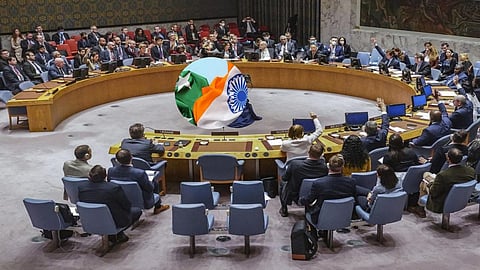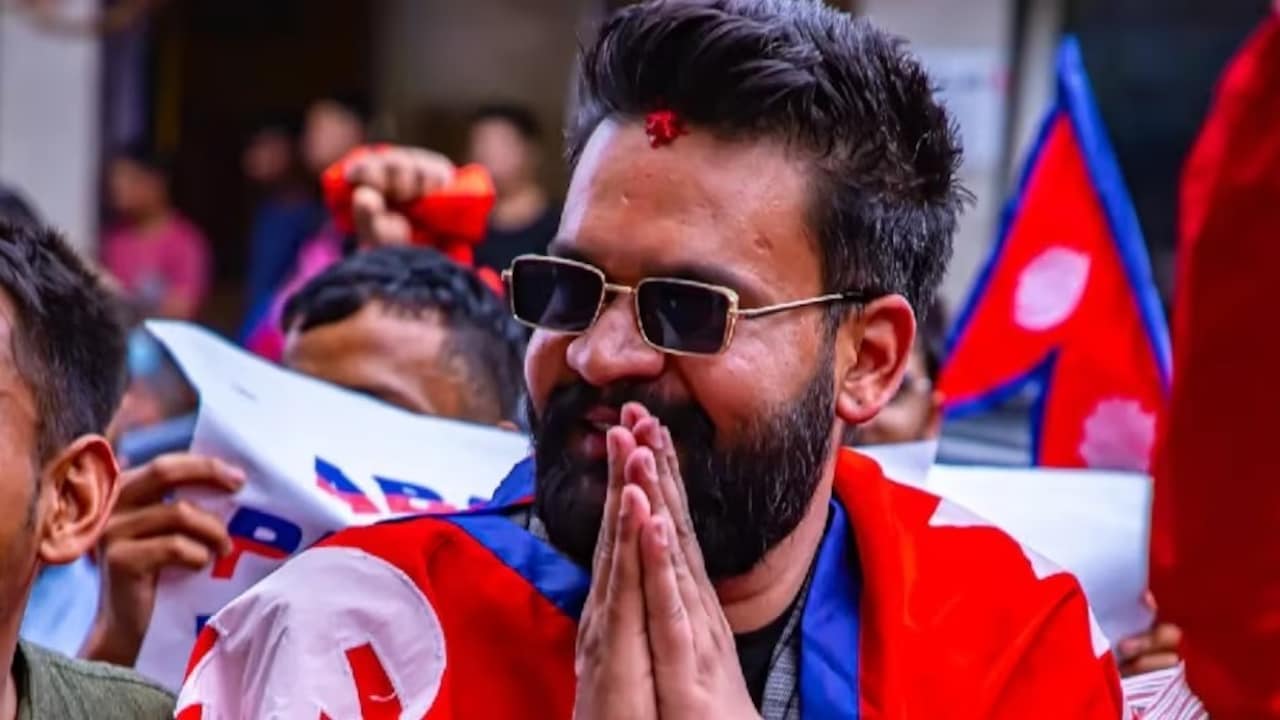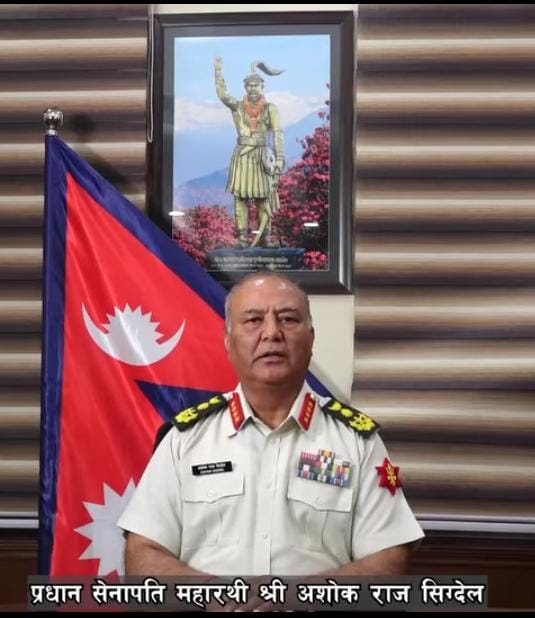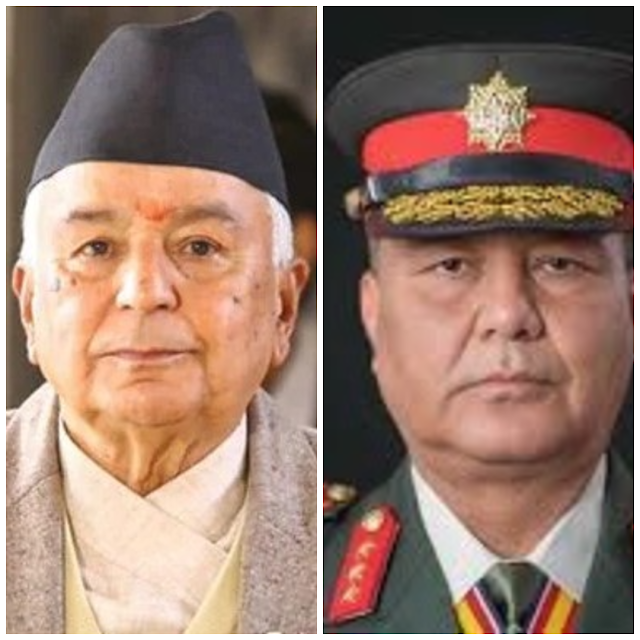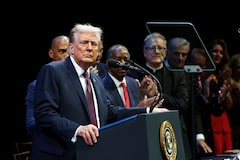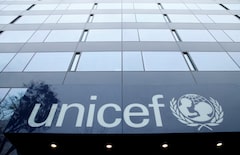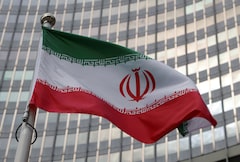PTI, May 06, 2025, United Nations : The UN Security Council discussed rising tensions between India and Pakistan at closed-door consultations, where envoys called for de-escalation and also asked Pakistan “tough questions”.
Greece, president of the UNSC for the month of May, had scheduled the meeting on Monday following a request by Pakistan, which is currently a non-permanent member. The meeting comes days after terrorists killed 26 people, mostly tourists, in Jammu and Kashmir’s Pahalgam, triggering outrage in India.
The 15-member UNSC did not issue a statement after the meeting, but Pakistan claimed that its own objectives were “largely served”.
Assistant Secretary-General for the Middle East, Asia and the Pacific in the Departments of Political and Peacebuilding Affairs and Peace Operations Khaled Mohamed Khiari of Tunisia briefed the Council on behalf of both departments (DPPA and DPO).
Coming out of the meeting, Khiari said there was a call for “dialogue and peaceful resolution of the conflict.” He noted that the “situation is volatile.”
Ambassador Evangelos Sekeris, a Permanent Representative of Greece to the United Nations and the current UNSC President, described it as a “productive meeting, helpful”.
A Russian diplomat said, “We hope for de-escalation.”
Sources here told PTI that members of the 15-nation Security Council raised “tough questions” for Pakistan at its informal session. It was advised to sort out the issues bilaterally with India, they said.
The sources added that there was broad condemnation of the terrorist attack and recognition of the need for accountability.
Some members specifically brought up targeting of tourists on the basis of their religious faith, the sources said.
UNSC members refused to accept the “false flag” narrative and asked whether Pakistan-based Lashkar-e-Taiba was likely to be involved.
The closed-door meeting that lasted about an hour and a half did not take place in the UNSC Chamber where Council members sit at the horse-shoe table, but in a consultation room next to it.
Sources added Pakistan’s efforts to internationalise the situation also failed. Many members expressed concern that Pakistan’s missile tests and nuclear rhetoric were escalatory factors.
Pakistan’s Permanent Representative to the United Nations Ambassador Asim Iftikhar Ahmad told reporters that the country’s objectives were “largely served and achieved” at the meeting.
He said the objectives of the closed consultations included enabling the Council members to have a discussion on the deteriorating security environment and rising tensions between India and Pakistan and to have an exchange of views on how to address the situation, including avoiding confrontation that could have serious consequences and the need for de-escalation.
Ahmad thanked Council members for their engagement and their calls for restraint, de-escalation and dialogue. He said that while Pakistan does not seek confrontation, “we are fully prepared to defend our sovereignty and territorial integrity”.
Pakistan also raised the issue of India’s suspension of the Indus Waters Treaty of 1960. “Water is life, not a weapon. These rivers sustain over 240 million Pakistanis,” he said.
Ahmad said at the meeting Pakistan reiterated its “commitment to peaceful, cooperative relations with all our neighbours, including India”.
“We remain open to dialogue based on mutual respect and sovereign equality,” he added.
“In view of the gravity of the situation, the calls for dialogue, de-escalation and peaceful resolution of disputes, such as by the Secretary-General, and what we also heard from the Council members today are most pertinent,” Ahmad said.
Before the UNSC meeting, India’s former Permanent Representative to the UN Ambassador Syed Akbaruddin had told PTI that no “consequential outcome” can be expected from “a discussion where a party to the conflict seeks to shape perceptions by using its membership of the Council. India will parry such Pakistani efforts.”
Following the meeting, he said, “Pakistan’s grandstanding has flopped again today as in the past. As was expected, there was no meaningful response by the Council. Indian diplomacy has yet again successfully parried Pakistani efforts to seek the Security Council’s intervention.”
Just hours before the closed consultations, UN Secretary-General Antonio Guterres voiced concern over tensions between India and Pakistan being at “their highest in years”.
“It pains me to see relations reaching a boiling point,” he said. He made these remarks to the press from the UNSC stake-out Monday morning. Guterres said he understands the “raw feelings” following the “awful terror attack” in Pahalgam and reiterated his strong condemnation of that attack.
“Targeting civilians is unacceptable – and those responsible must be brought to justice through credible and lawful means,” he said.
The UN chief stressed that it is essential – especially at this critical hour — to avoid a military confrontation that could easily spin out of control.
“Now is the time for maximum restraint and stepping back from the brink. That has been my message in my ongoing outreach with both countries. Make no mistake: A military solution is no solution,” the UN chief said.
Apart from the five veto-wielding permanent members — China, France, Russia, the UK and the US — the 10 non-permanent members in the Council are Algeria, Denmark, Greece, Guyana, Pakistan, Panama, South Korea, Sierra Leone, Slovenia and Somalia.


